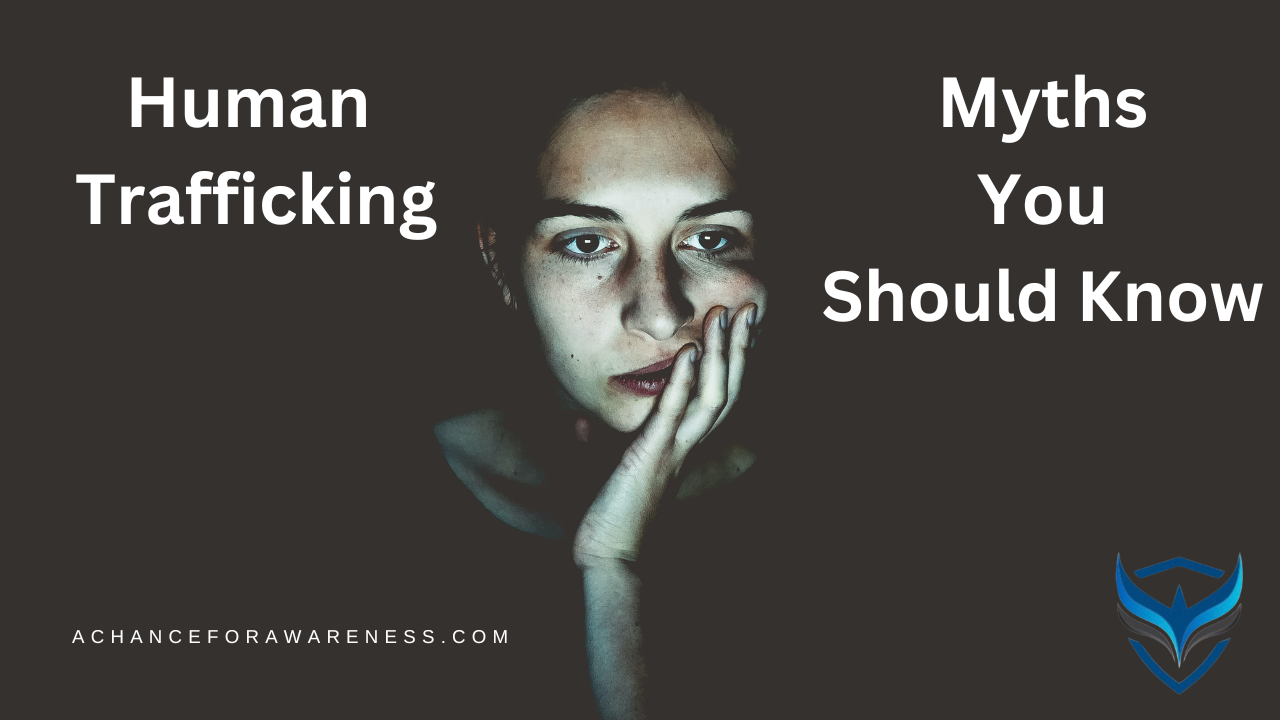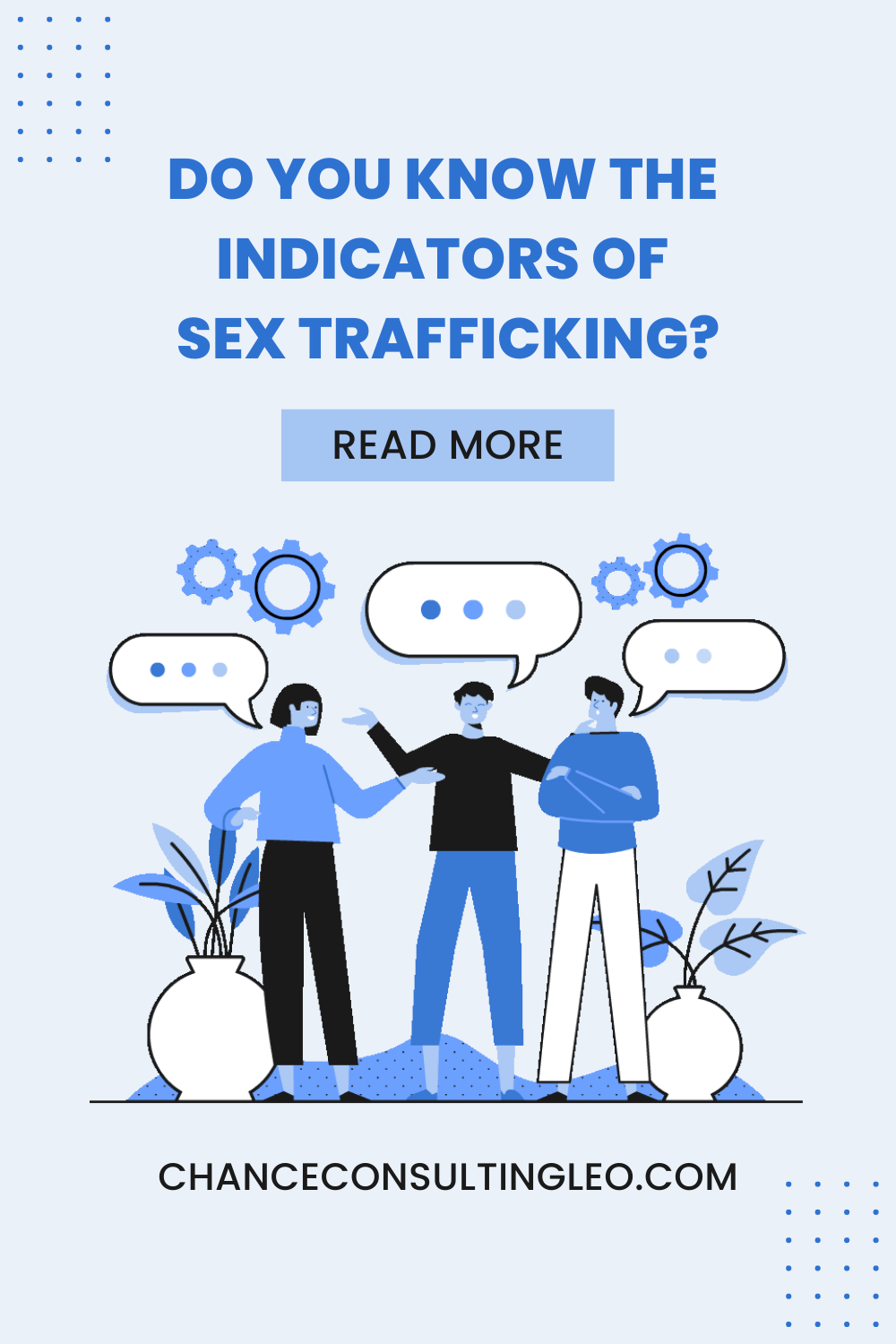Human Trafficking Myths You Should Know

There are many myths surrounding people's understanding of Human Trafficking:
MYTH 1. Human trafficking always involves sexual exploitation.
Human Trafficking involves forced labor and or forced sexual exploitation. Most trafficking victims who are exploited for labor purposes are mostly trafficked for agricultural or domestic work. Sex trafficking refers explicitly to those victims who are sexually exploited. For both, investigators need to prove force, fraud, or coercion existing in the exploitation.
However a juvenile is automatically a victim and there is no need to prove force, fraud, or coercion, nor do investigators need to prove knowledge of age. This means that if a Buyer picks up a girl who is dressed looking older and even lies about her age, the Buyer can be arrested for child sex trafficking regardless of what age they thought the victim was.
In my opinion, this is a huge win! I have unfortunately had to release suspects prior to the law change for the fact that I couldn't prove knowledge of age at the time.
MYTH 2. Traffickers only target victims they don't know.
Unfortunately, traffickers also target people they know. Most take special time investing in getting to know their victims so that they can better control them. Some traffickers are even family members.
I worked on a case for over 5 years involving familial trafficking, where the trafficker was the victim's uncle. The victim was exploited for several years before disclosing what was happening. The suspect was found guilty of 101 out of 105 counts and was sentenced to 493.5 years in prison! See the case information at this link.
https://www.maricopacountyattorney.org/CivicAlerts.aspx?AID=334
MYTH 3. Only women can be trafficked for sex.
Victims can include male, female, LGBTQ+, and other special populations including indigenous women and children. Human trafficking has no preference when it comes to a victim’s race, class, creed or color, economic status, or demographic background.
MYTH 4. Victims are usually kidnapped by a stranger.
Victims especially runaway youth, can often turn to prostitution because they feel that they have to earn or pay back a trafficker's perceived kindness for taking them in. Some runaways resort to prostitution for survival while out on the run, but there is a statistic that says within the first 48 hours, 1 in 3 youth out on the street are lured into prostitution. Young girls especially can be coerced into sex work by traffickers who work at grooming them to manipulate and gain their trust.
MYTH 5. Victims of human trafficking are being held against their will.
This is sometimes the case, but more often victims stay for a complicated variety of reasons. Some victims lack the basic resources to leave such as financial ability, transportation, or a safe place to live, and have the belief that they have no support system if they leave. Many victims fear for their safety and the safety of their families if they leave. Threats play a huge part in the manipulation of victims of trafficking.
All myths aside, the fact is that we don’t need special skills to fight sex trafficking, awareness helps fight this problem! When we become aware of the realities of this problem and its very real dangers, we can share the facts with others.
Sex trafficking is a serious and widespread problem that affects millions of people around the world. It is a form of modern slavery that involves the exploitation of individuals for the purpose of sexual exploitation or forced labor.
Raising awareness about sex trafficking is crucial in the fight against this crime. By educating the public about the signs and symptoms of sex trafficking, we can help to identify potential victims and provide them with the support and assistance they need. Learn about the Sex Trafficking Indicators here.
Overall, sex trafficking is a serious and complex issue that requires the collective efforts of individuals, organizations, and governments to address. By raising awareness and supporting efforts to combat this crime, we can help to protect vulnerable individuals and make a real difference in the fight against sex trafficking.
Learn more by taking my online course Sex Trafficking "The Power of Awareness", and sign up for the course waitlist here. There is something you can do to help fight this problem today!
Stay connected with news and updates!
Join our mailing list to receive the latest news and updates from our team.
Don't worry, your information will not be shared.
We hate SPAM. We will never sell your information, for any reason.



